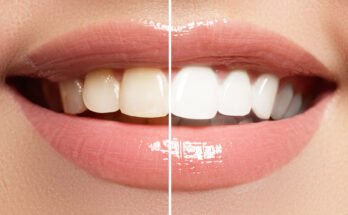Tooth neuralgia, not to be confused or trigeminal, can cause unbearable pain, swelling of the gums, sensitivity, and bad breath. There are many possible causes. However, prompt treatment is required for dental neuralgia.
A severe toothache is caused by a tooth. It then affects the entire dental arch, extending to the face, neck, and mouth. Also, this can be caused by eating hot or cold substances or chewing.
Neuralgia is a painful sensation in the teeth that can sometimes make it difficult to sleep. He who has never had a toothache as severe in his entire life is blessed. It is said to be one of the most painful and exhausting pains.
What happens to the nerves when they get inflamed?
First, let’s clarify the meaning of neuralgia. What does it mean? What pathology is it referring to? Neuralgia can affect other parts of the body, as well as teeth. A general condition that causes irritation or damage to nerves. Also, this inflammation causes severe pain.
Tooth neuralgia: What it is and how it lasts
Tooth nerve irritation occurs when the nerve that feeds the teeth is damaged or inflamed. All teeth may be affected by neuroglia, which can cause pain. Tooth neuralgia can last for a long time. Also, sometimes, a first vote may manifest itself, then remain silent for several days, before finally appearing.
Toothache and trigeminal neuralgia
It is possible to confuse situations that may be very similar in suffering but completely different in their causes and nature. These are trigeminal and dental neuralgia.
Both cases involve a nerve that can cause pain. It’s not the same nerve. The difference is significant. The dentist is the best specialist to see in the first instance, as it is a toothache. If you are in London Ontario and facing this problem you can get help from the emergency dentist in London Ontario.
This is called the trigeminal and requires intervention by a neurologist. Also, this is because the pain you feel and the areas affected are similar, which can lead to confusion.
How to identify dental neuralgia symptoms
Other symptoms, in addition to pain, allow us to recognize the neuralgia of teeth and distinguish it from the trigeminal.
- Burning
- Swollen cheeks and face
- Swollen gums, you should know what are the causes of gum pain.
- Halitosis
- Hypersensitivity
- Stiffness in the shoulders
Dental neuralgia causes:
There are many causes of dental neuropathy. Also, it is important to see your trusted dentist determine the root cause of the pain.
The major assumptions are:
- Caries are the most likely circumstance. It denotes a very advanced cariogenic process and therefore, deep caries.
- Gum inflammation
- Cyst
- Bruxism
- Traumas
There are many treatments and remedies available for tooth neuralgia.
The treatments for tooth neuralgia must be different if the causes are different. As mentioned above, the first thing you should do is contact a dentist. Also, once the root cause of the problem is established, the dentist will recommend the best treatment.
However, you can still take specific analgesic and anti-inflammatory drugs to ease the pain. Also, it is important to maintain good oral hygiene, including the use of warm water to avoid dental-sensitive reactions.
Also, don’t forget to check other useful articles here.




